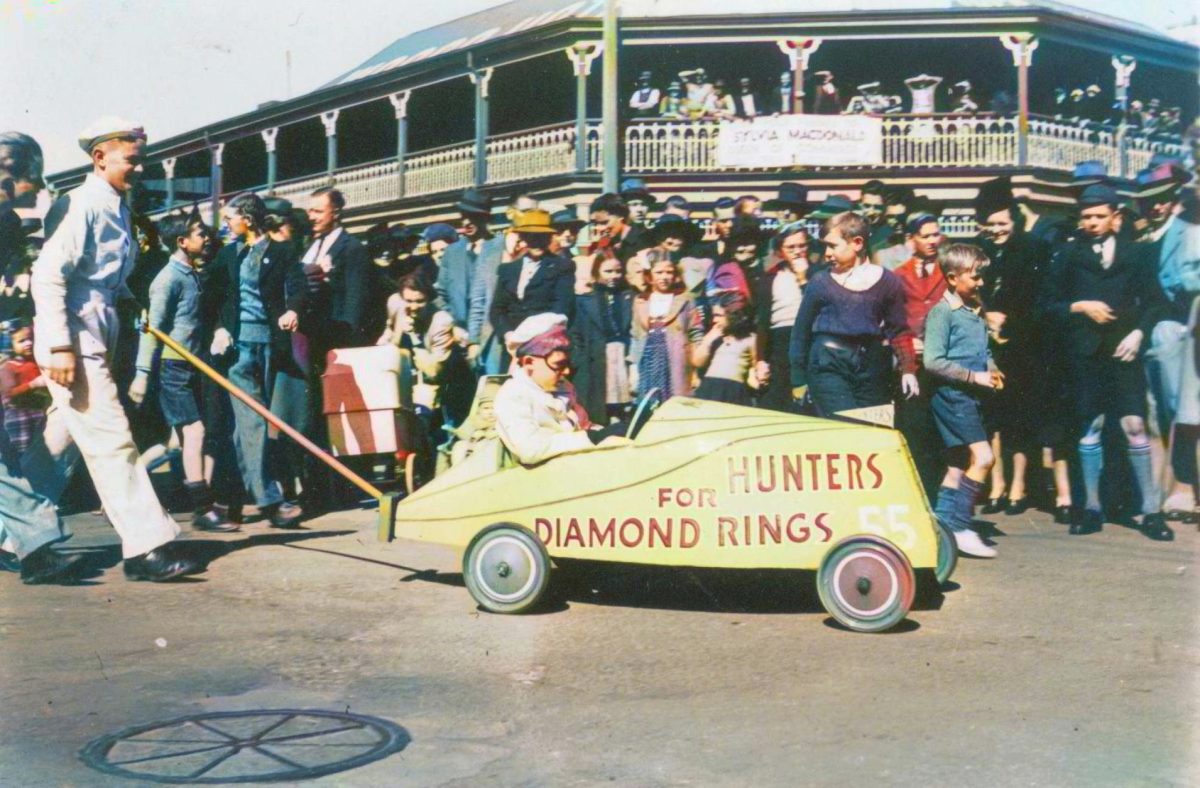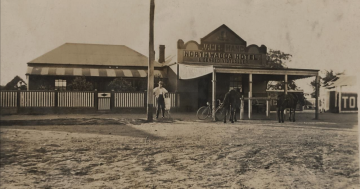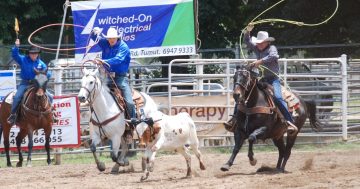
The Hunter Bros Billycart is pushed up Baylis Street towards the start of the race. Photo: Museum of the Riverina (colourised using Palette).
This week, the Museum of the Riverina rolls back to 1947, and to a fine winter’s day in June.
Here, we join the crowds gathered on the corner of Baylis and Forsyth streets as the Hunter Bros billycart, ”Hunter’s Veteran” 55, with its driver raring to go, is being pushed up Baylis Street towards Macleay Street and the top of the hill where the race was to begin.
Each billycart had an attendant, and some carts were pushed along with the use of a long pole, with a padded end, which can be seen in this image.
You can see the familiar facade of the Union Club Hotel directly behind. More onlookers stand on the balcony, upon which hangs a sign advertising Sylvia Macdonald. Sylvia was a Wagga-born opera singer of international renown who served as an AWA (Amalgamated Wireless Australasia) signaller/clerk during WWII.
The Riverina Billycart Derby was organised by the Wagga and District Chamber of Commerce and took place on the King’s Birthday Holiday, Monday, 16 June, 1947.
It officially began at noon, with the Assembly of Vehicles and Grand Parade down the main street of Wagga. About 30 carts participated, their arrival announced by the drums and brass of the RAAF band.
At this stage, the carts were allowed to be festooned with advertising or other temporary attachments, and the cart with the best advertising value was awarded a prize of £2/2- (won by Hunter Bros).
The competition itself started at 1 pm, with races taking place every three to five minutes. A total of 57 races had been held by 5 pm!
Competitors lined up at the intersection of Macleay and Coleman streets, near Wagga High, before hurtling down the hill towards the train tracks in their prescribed lanes.
They had to then navigate the bend onto Railway Street, which had been stacked with hay bales, before finally drawing to a stop along Mother’s Bridge, covering a distance of about 220 yards (202 metres).
The following day, it was estimated that a record crowd of 3177 paying spectators had watched the races; however, the police estimated that 4000 attended, with some gaining access at entry points that had not been anticipated by the organisers (and were therefore unattended).










